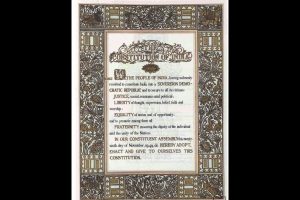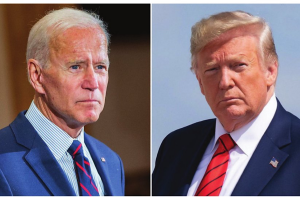In a world marked by technological advances and digital communication, boundaries seem to blur, especially when it comes to human relationships. The recent online marriage between Mohammad Abbas Haider, son of BJP councillor Tahseen Shahid from Uttar Pradesh, and Antleep Sara, a Pakistani woman from Lahore, has captured the attention of many, not just for its modern take on tradition but for the powerful message it sends about the potential for human connection to transcend political borders.
At a time when Indo-Pakistani relations remain fraught with tension, this marriage serves as a reminder of the people-to-people ties that continue to flourish despite the political climate. It also highlights the growing need for easing travel, facilitating smoother cross-border interactions, and reviving regional cooperation frameworks like SAARC and SAFTA. This marriage took place virtually because bureaucratic delays in visa processing, exacerbated by strained Indo-Pakistani relations, prevented the couple from meeting in person. Online platforms provided a temporary solution, but it also underscored the limitations imposed by current political realities. Visa restrictions between India and Pakistan have long been a point of contention, impeding families, couples, and friends who wish to stay connected. Imagine a South Asia where such challenges no longer exist – where visa-free travel is not just a dream, but a reality.

This is not unprecedented. India already shares such an arrangement with Nepal and Bhutan, allowing citizens to travel freely across borders, fostering not just familial ties but economic and cultural exchanges. A similar arrangement between India and Pakistan could revolutionize the relationship between the two countries. Cross-border marriages, much like the one between Abbas and Sara, would no longer be anomalies facilitated by technology, but common occurrences, bringing two historically linked nations closer together. People-to-people contact has long been seen as a way to soften diplomatic tensions.
History is rife with examples of how cultural and familial exchanges have played a crucial role in easing hostility between nations. By allowing citizens more freedom to interact, understand each other’s culture, and build personal connections, India and Pakistan could lay the foundation for a future that is more collaborative and less adversarial. The online marriage between Abbas and Sara is also a timely reminder of the potential that exists within the South Asian region for greater cooperation.
The South Asian Association for Regional Cooperation (Saarc), once a promising regional organization aimed at fostering economic and political cooperation among its member states, has been largely dormant in recent years due to geopolitical tensions, primarily between India and Pakistan. Saarc, along with the South Asian Free Trade Area (Safta), could serve as the perfect platform to facilitate not just trade, but also cultural and social exchanges. These regional frameworks were designed to promote cooperation in a variety of sectors, from economic development to healthcare and education.
By reviving these platforms, South Asia could harness the collective potential of its member states, including India and Pakistan, to tackle common challenges like poverty, health crises, and climate change. One way to breathe new life into Saarc would be by creating special provisions for people-to-people contact, particularly for families separated by borders. Saarc could introduce a simplified visa process or even work towards establishing a visa-free regime, allowing citizens to travel across member states with minimal restrictions.
This would not only help families like Abbas and Sara’s, but it would also promote tourism, enhance business relations, and encourage cultural exchanges. Beyond easing travel restrictions, there is also a growing call for restoring Pakistan’s “Most Favored Nation” (MFN) status with India. India revoked Pakistan’s MFN status in 2019 following the Pulwama attack, dealing a significant blow to trade relations between the two countries. Restoring this status would be a vital step towards economic integration, allowing for smoother trade relations and fostering interdependence between the two economies.
Cross-border marriages, much like cross-border trade, thrive in environments where borders are porous, both figuratively and literally. Economic integration through Safta and MFN restoration could create a more interlinked South Asia, where mutual benefits are prioritized over political hostilities. A shared economy would not only reduce poverty in the region but would also foster peace. Economic ties often create a strong incentive for maintaining stable diplomatic relations. In the European Union, for example, economic interdependence has been a key factor in maintaining peace among member states. South Asia could follow a similar model, using trade and economic cooperation as a bridge to ease political tensions. The role of technology, particularly in the context of online marriages like that of Abbas and Sara, cannot be overstated.
In an era where diplomatic relations are at a low, technology offers a unique solution for maintaining human connections. The rise of online platforms has enabled couples, friends, and families separated by borders to stay connected. But while technology offers temporary solutions, it is no substitute for actual people-to-people contact. The growing trend of online marriages in the South Asian context shows that technology is filling the gaps left by diplomacy. However, it also emphasizes the need for more permanent solutions. Governments must recognize that citizens on both sides of the border are eager for closer ties.
By leveraging technology alongside political reforms such as easing visa restrictions, reviving SAARC, and restoring MFN status India and Pakistan could create a framework for more sustainable, long-term relations. Celebrity couples like Shoaib Malik and Sania Mirza have long served as symbols of Indo-Pak unity, but their relationship also highlighted the bureaucratic hurdles faced by cross-border couples. The recent separation of Shoaib and Sania has led many to speculate that visa complications and difficulties in travel between the two countries may have added stress to their relationship. Their experience, much like that of Abbas and Sara, serves as a poignant reminder of the need for easier travel regulations between India and Pakistan.
Cross-border marriages are not a new phenomenon. Many families in both countries have relatives on either side of the border, a legacy of the Partition in 1947. Yet, the bureaucratic red tape that exists today makes it difficult for such families to maintain regular contact. The online marriage of Abbas and Sara is more than just a personal story – it is a symbol of the potential for Indo-Pak relations to improve through people-to-people contact. By reviving Saarc and Safta, restoring Pakistan’s MFN status, and creating a visa-free travel system, the two nations can foster not only economic cooperation but also personal connections. In a world where political boundaries often divide, human relationships remind us that we are more connected than we think. The time has come for India and Pakistan to embrace these connections and chart a new path forward—one built on understanding, cooperation, and mutual respect.
(The writer is Associate Professor, Centre For South Asian Studies, Pondicherry Central University.)











